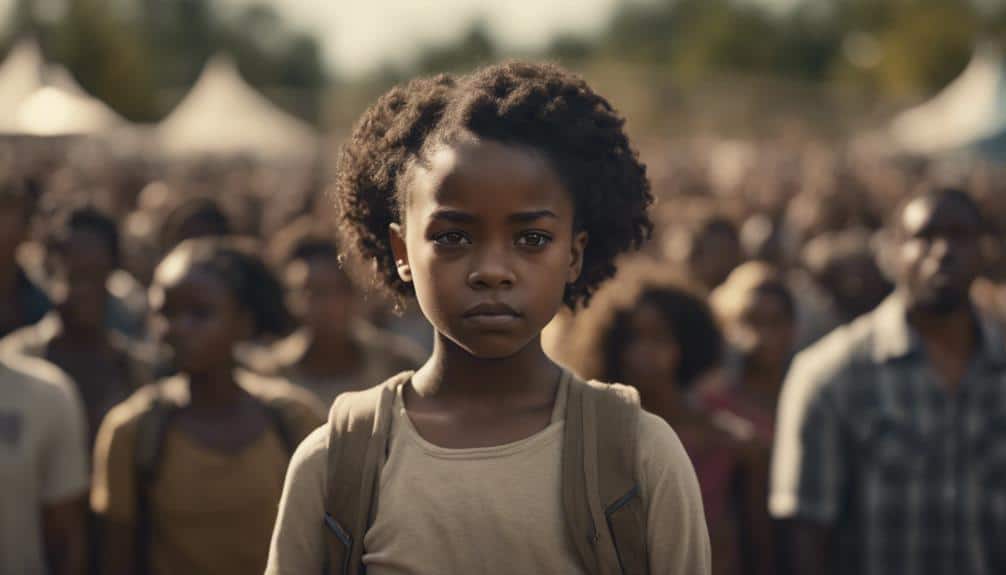
In the tapestry of history, the stories of these ten remarkable African American girls shine as beacons of resilience and courage in the face of adversity. Each one faced discrimination head-on, their journeys marked by unwavering determination and a relentless pursuit of justice.
As their narratives unfold, a tapestry of strength and triumph emerges, inviting a closer look at the profound impact of their actions. Each individual’s unique path paved the way for change, leaving an indelible mark on the world.
Their legacies continue to inspire and challenge societal norms, sparking conversations that resonate far beyond their time.
1. Daisy Bates: Champion of Civil Rights
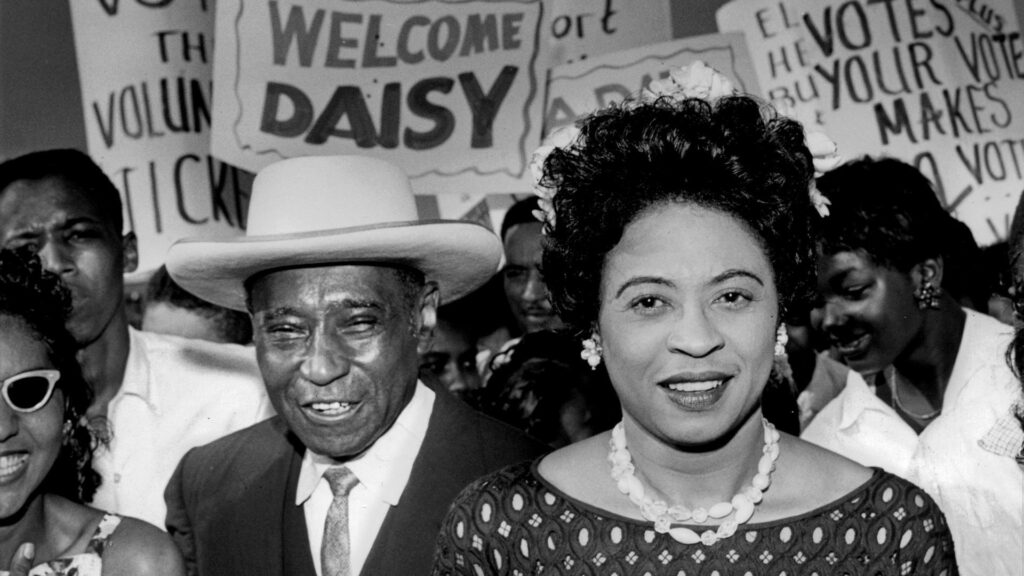
Daisy Bates, a pivotal figure in the civil rights movement, played a crucial role in integrating the Little Rock Nine, demonstrating unwavering dedication to racial equality.
As one of the notable black women leaders of her time, Bates was deeply involved in advocating for racial justice, mainly through her work in the NAACP and as the founder of the Arkansas State Press. Her strong advocacy for voting rights and economic empowerment highlighted her commitment to equality.
Bates’s leadership was evident in her organization and guidance of desegregation efforts, significantly impacting the civil rights movement.
Throughout her life, Daisy Bates remained a steadfast champion of civil rights, leaving a lasting legacy of resilience and empowerment for generations to come.
2. Fannie Lou Hamer: Voting Rights Activist
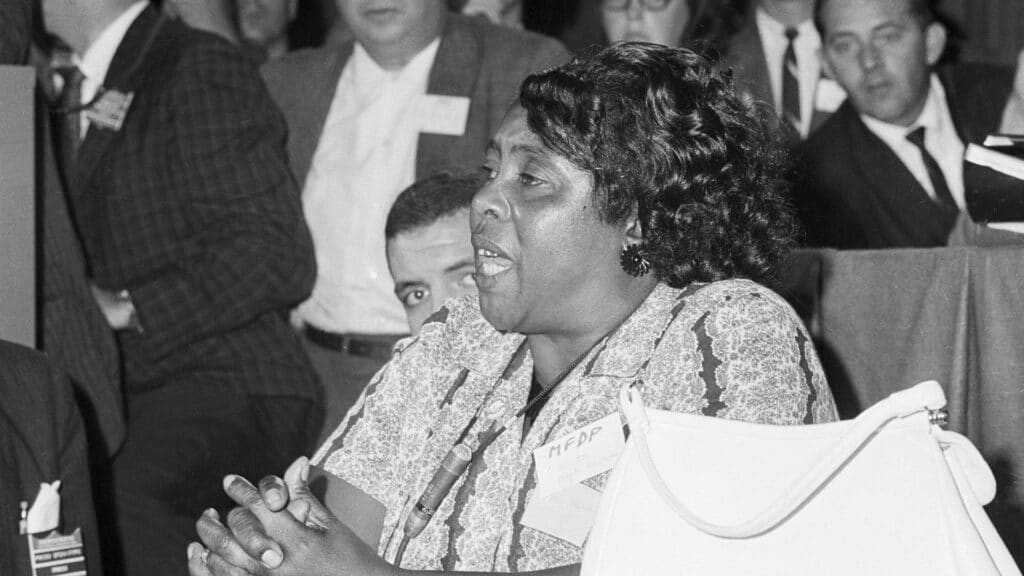
After her pivotal role in the civil rights movement, Fannie Lou Hamer emerged as a formidable voting rights activist, co-founding the Mississippi Freedom Democratic Party to champion the fight for electoral equality.
Hamer’s bravery shone through as she testified at the Democratic National Convention about experiencing police brutality and survived severe beatings in jail for her activism.
In addition to her political endeavors, she founded the Freedom Farm Cooperative, empowering Black farmers and communities.
Hamer’s dedication to civil rights and voting rights earned her numerous awards for her courageous activism during the Civil Rights Movement. Through her unwavering commitment to equality and justice, Fannie Lou Hamer continues to inspire generations to stand up against discrimination and fight for a fair and inclusive society.
3. Dorothy Height: Women’s Rights Advocate
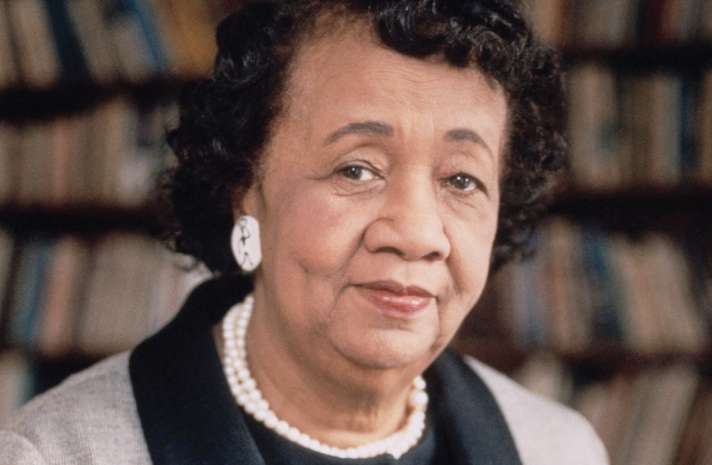
Dorothy Height, a prominent advocate for women’s rights, was the dedicated president of the National Council of Negro Women for over four decades, tirelessly championing economic empowerment and civil rights. Height played a key role in the March on Washington in 1963 alongside Martin Luther King Jr. and other civil rights leaders. She received the Presidential Medal of Freedom in 1994 for her significant contributions to the advancement of women’s rights and social justice. Height worked on the desegregation of the YWCA and fought for equal rights for African American women. Dorothy Height was a pivotal figure in the civil rights movement, addressing issues of racial and gender inequality.
- Played key role in the March on Washington in 1963.
- Received the Presidential Medal of Freedom in 1994.
- Worked on the desegregation of the YWCA.
- Fought for equal rights for African American women.
4. Septima Poinsette Clark: Education Pioneer
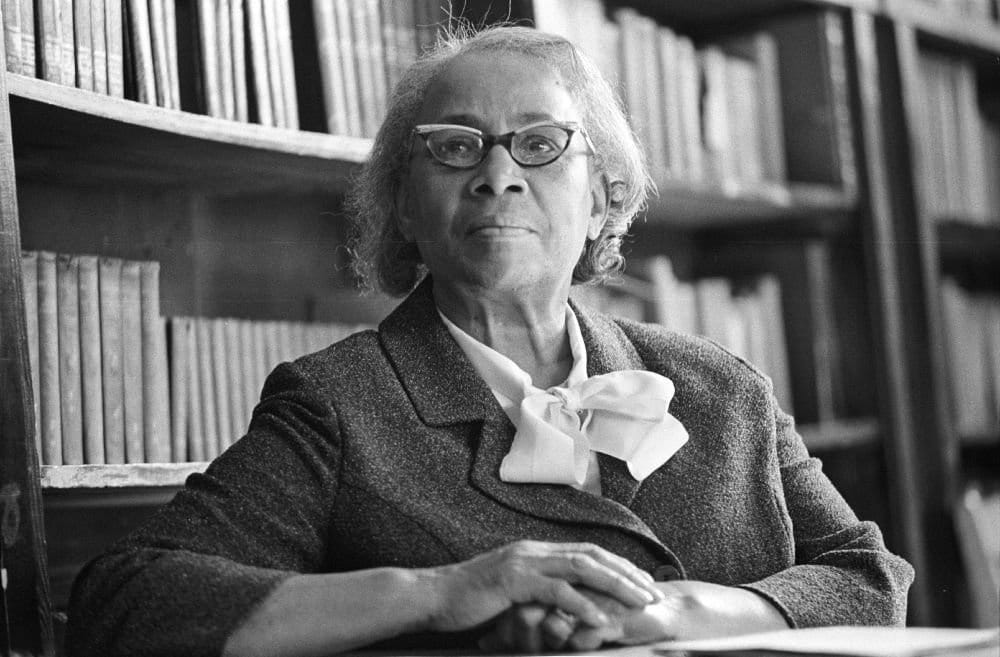
Septima Poinsette Clark, an influential figure in the Civil Rights Movement, pioneered the establishment of citizenship schools to empower African Americans with education and voting rights. Working closely with Martin Luther King Jr., she significantly advocated for civil rights and equal opportunities.
Clark’s advocacy was instrumental in the Civil Rights Act of 1964, furthering the cause of equal rights for all. As a dedicated educator, she impacted many lives and promoted grassroots organizing within communities.
Her legacy includes inspiring future civil rights leaders and advancing educational and social equality. Septima Poinsette Clark’s commitment to civil rights, education, empowerment, and advocacy continues to stand as a testament to the resilience and determination of individuals fighting against discrimination.
5. Ella Baker: Grassroots Organizer
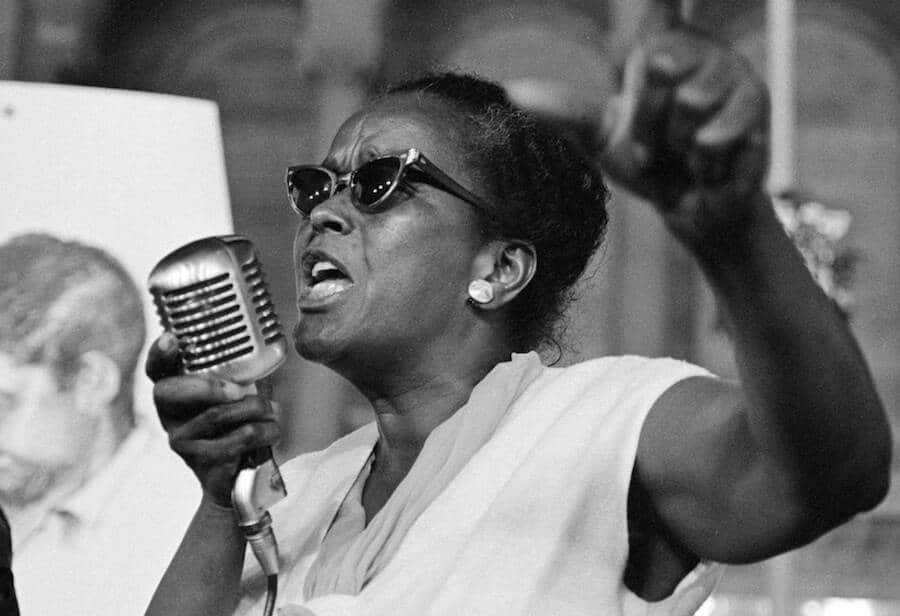
Ella Baker emerged as a pivotal figure in the Civil Rights Movement due to her influential role as a grassroots organizer, shaping the strategies and actions of leaders in the fight for social change. Baker’s impact extended to forming the Student Nonviolent Coordinating Committee (SNCC) and mentoring young activists, advocating for grassroots organizing and empowerment. Her emphasis on collective action and community organizing resonated with Civil Rights Movement leaders, influencing their approaches. Baker’s dedication to empowering marginalized communities through grassroots efforts left a profound legacy of activism and social change.
Played a key role in the formation of the Student Nonviolent Coordinating Committee (SNCC).
Mentored young activists and advocated for grassroots organizing and empowerment.
Influenced Civil Rights Movement leaders, shaping their strategies and actions.
Emphasized the importance of collective action and community organizing.
Uncover the essential role of trusting black women in paving the way for improved health outcomes. Click Here!
6. Pauli Murray: Legal Trailblazer
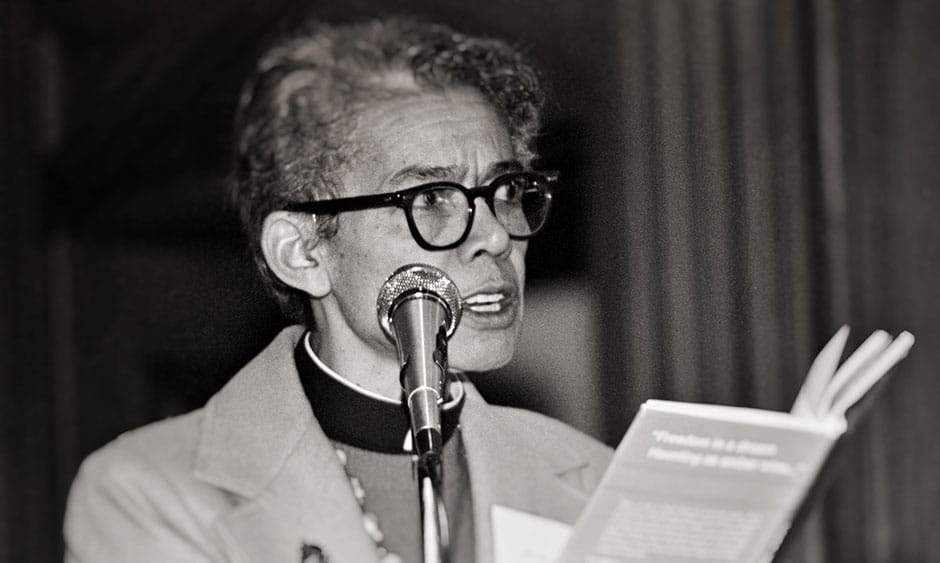
A pioneering figure in the realm of civil rights and legal advocacy, Pauli Murray left an indelible mark as a trailblazer in her pursuit of justice and equality. Murray, the first African American female Episcopal priest, co-founded the National Organization for Women (NOW), advocating for gender equality. Her work as a legal scholar and writer significantly influenced gender equality movements. The impact of Murray’s activism reverberated in the fight for civil rights, paving the way for future generations to continue the pursuit of equality and justice.
| Accomplishments | Impact |
|---|---|
| First African American female Episcopal priest | Broke barriers in religious leadership |
| Co-founded National Organization for Women (NOW) | Advocated for gender equality |
7. Diane Nash: Nonviolent Protest Leader
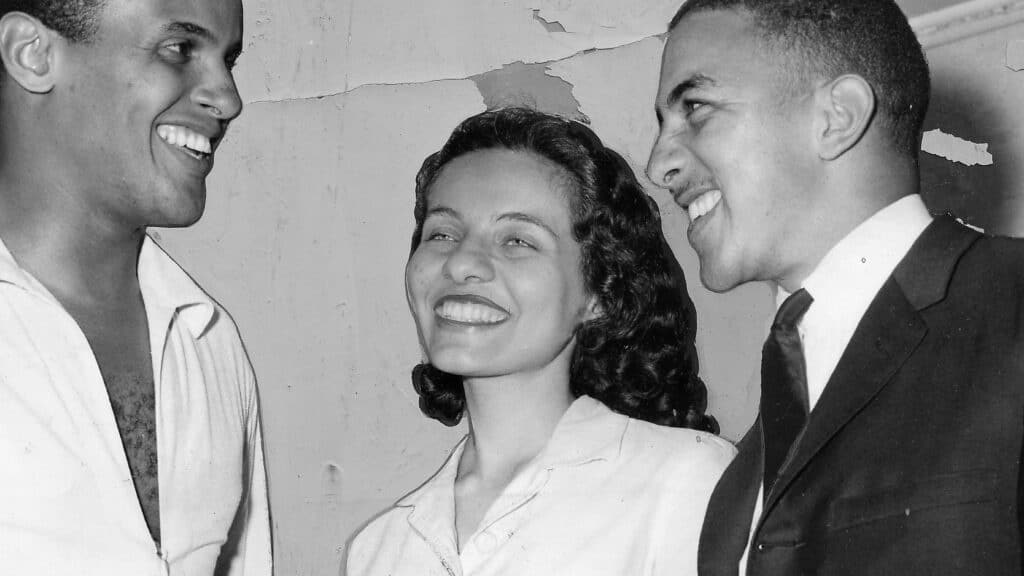
Diane Nash, a prominent leader in nonviolent protests during the Civil Rights Movement, played a pivotal role in shaping the course of activism for racial equality. She co-founded the Student Nonviolent Coordinating Committee (SNCC) and played a key role in organizing sit-ins and Freedom Rides. Nash was a strategist for the Civil Rights Movement and actively worked for desegregation and voting rights. Her dedication to grassroots organizing and activism influenced leaders in the fight for racial equality.
- Co-founded the Student Nonviolent Coordinating Committee (SNCC).
- Organized sit-ins and Freedom Rides.
- Worked for desegregation and voting rights.
- Influenced leaders in the fight for racial equality.
8. Dolores Huerta: Labor Rights Activist
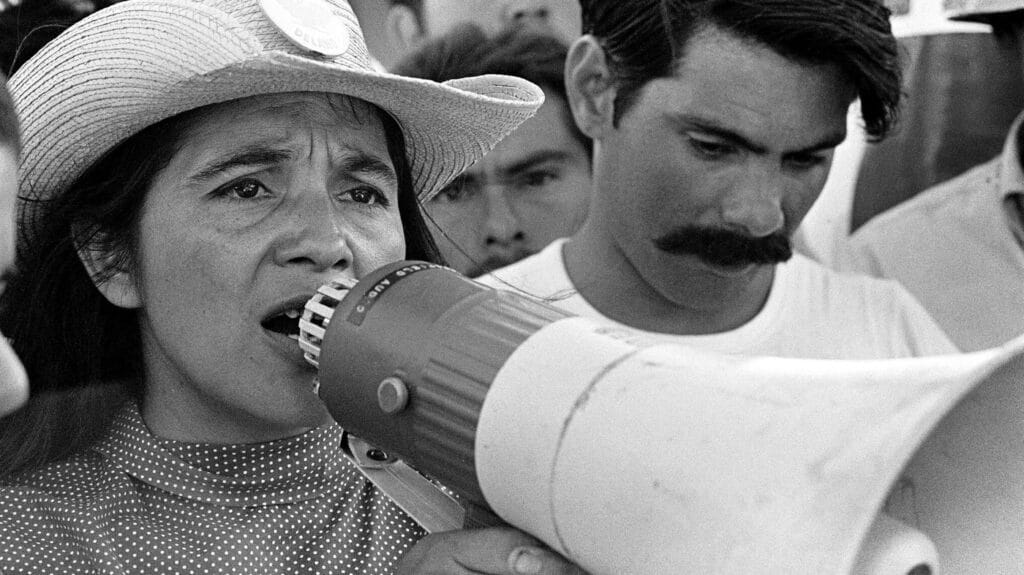
Dolores Huerta, a prominent figure in the fight for labor rights, co-founded the United Farm Workers organization to advocate for fair wages and better working conditions for farmworkers. She dedicated her life to fighting for labor rights, leading strikes and boycotts to address labor injustices faced by farmworkers.
Huerta’s activism was instrumental in bringing attention to the discrimination and hardships endured by those in the agricultural industry. Her efforts paved the way for significant legislative changes aimed at protecting the rights of immigrant workers and farmworkers. Recognized for her unwavering commitment to social justice, Huerta was awarded the Presidential Medal of Freedom.
Through her tireless advocacy and activism, she inspired change and left a lasting impact on the fight for labor rights.
9. Shirley Chisholm: Political Trailblazer
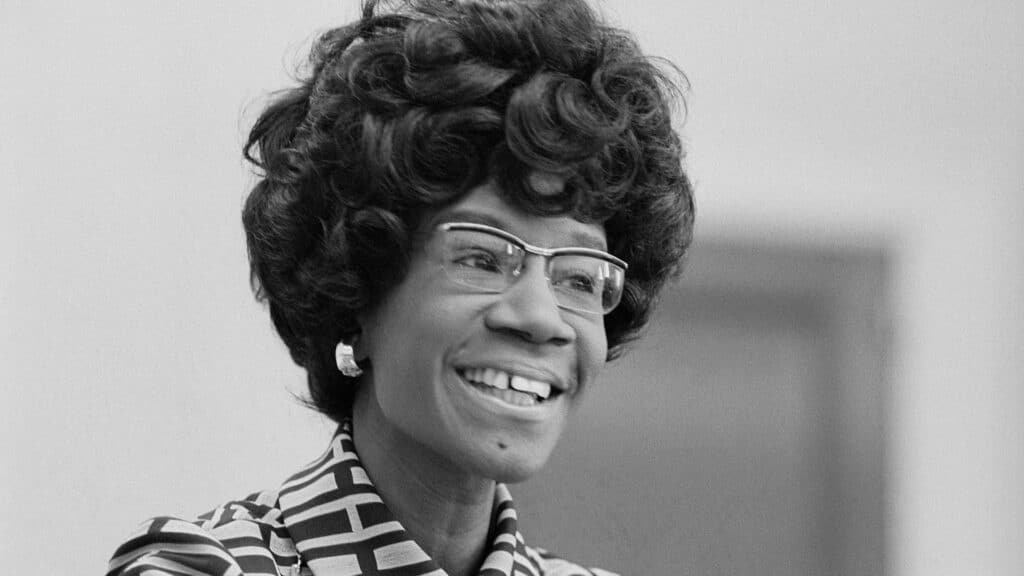
Shirley Chisholm, a groundbreaking figure in American politics, shattered barriers as the first African American woman elected to the United States Congress in 1968. She was a trailblazer who later became the first African American woman to run for a major party’s presidential nomination in 1972. Chisholm represented New York’s 12th congressional district and was a vocal advocate for civil rights and women’s rights. Additionally, she co-founded the Congressional Black Caucus and the National Women’s Political Caucus to promote diversity and equality in politics.
- Chisholm broke barriers as the first African American woman elected to Congress.
- She ran for a major party’s presidential nomination in 1972.
- Shirley Chisholm was a strong advocate for civil rights and women’s rights.
- She co-founded the Congressional Black Caucus and the National Women’s Political Caucus.
10. Katherine Johnson: STEM Pioneer
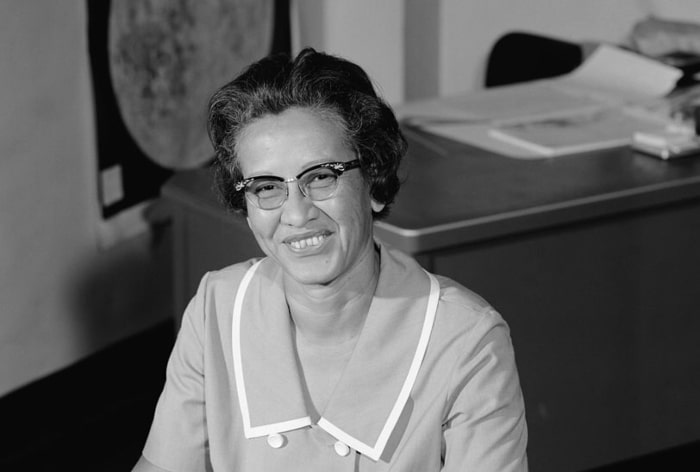
Katherine Johnson, a pioneering African American mathematician, made significant contributions to NASA’s space missions by calculating trajectories for the Mercury and Apollo programs, playing a crucial role in the success of the first manned spaceflights and the Apollo 11 moon landing. Despite facing discrimination and segregation, Johnson’s work helped break down barriers for women and people of color in STEM fields.
Her precise calculations were essential for ensuring the safety and accuracy of astronauts’ missions, earning her the Presidential Medal of Freedom in 2015 for her groundbreaking achievements. Johnson’s story, featured in ‘Hidden Figures’ and a subsequent film, brings recognition to her remarkable contributions to space exploration, inspiring future generations to pursue careers in STEM.
Discover why black girls are denied their childhood in this insightful piece from The New York Times.
Conclusion
In conclusion, the stories of these inspiring African American girls who overcame discrimination serve as a testament to the power of resilience, determination, and activism.
Their unwavering commitment to fighting for justice and equality has left an indelible mark on history, inspiring generations to continue the fight for a more inclusive and equitable society.
Their legacies continue to shine brightly, serving as beacons of hope and empowerment for all who face adversity.
